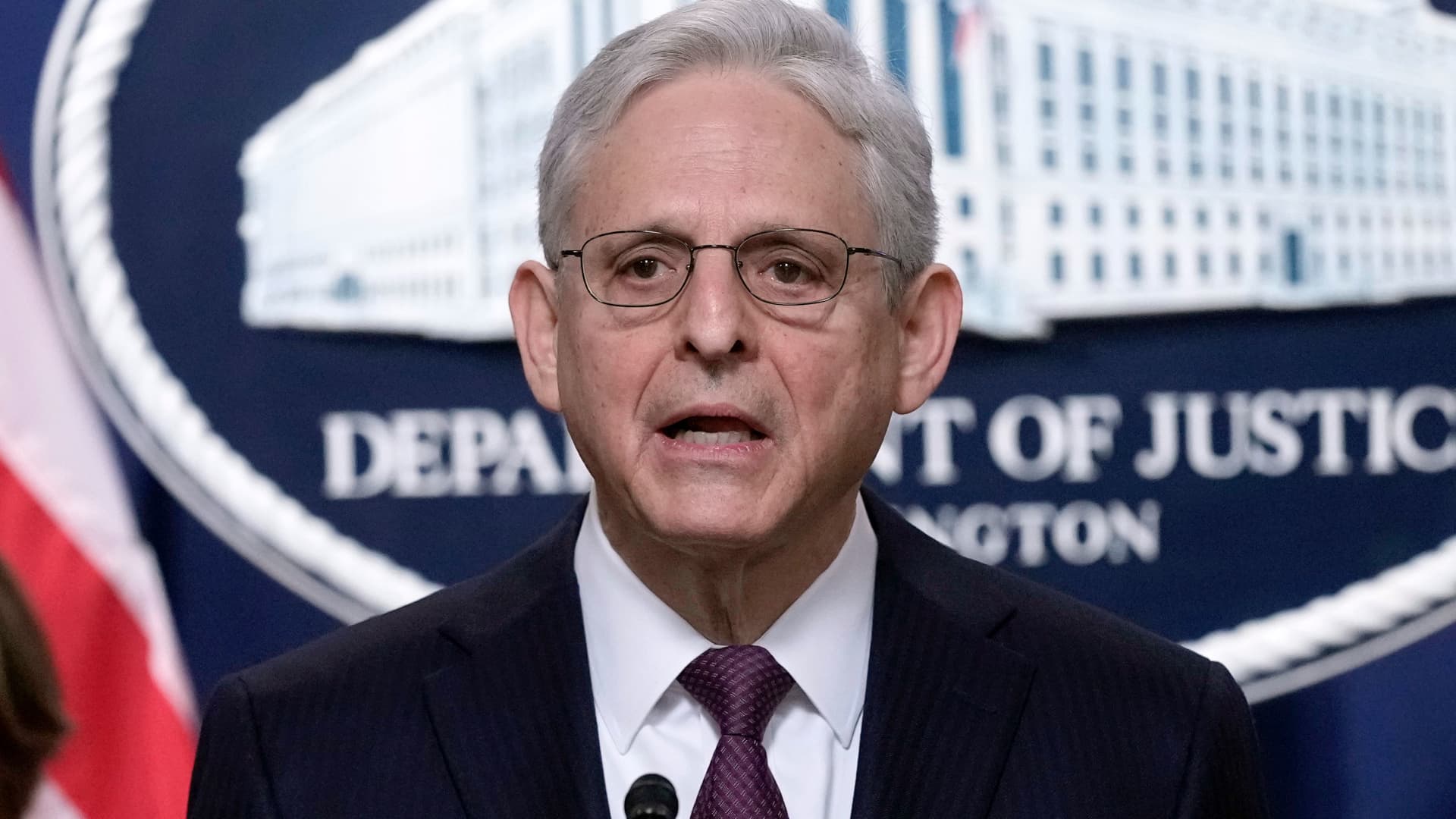Drugs, guns and crypto seized, 288 arrested, in ‘unprecedented’ dark web crackdown

Attorney General Merrick Garland speaks during a news conference at the Justice Department in Washington, April 14, 2023, on significant international drug trafficking enforcement action.
Susan Walsh | AP
A consortium of U.S. and international law enforcement made 288 arrests and seized over $53 million in cash and cryptocurrency as part of an “unprecedented” dark-web drug enforcement action called Operation SpecTor, Attorney General Merrick Garland said in a press conference Tuesday.
“The Justice Department is cracking down on criminal cryptocurrency transactions,” Garland said, “and the online criminal marketplaces that enable them.”
Dozens of firearms and more than 850 kilograms of drugs were also seized in Operation SpecTor, an allusion to the dark-web browsing protocol. The operation was coordinated alongside Europol and resulted in the seizure of a dark-web marketplace called Monopoly Market, according to a press release from the European agency.
The operation began in October 2021, Garland said.
The Justice Department said more than 100 federal operations and prosecutions had been made in the U.S. Garland said 153 domestic suspects had been arrested, including a California man who allegedly sold nearly $2 million worth of fentanyl and methamphetamine on the dark web.
German police first seized the marketplace’s online infrastructure in December 2021 and worked alongside Europol and international law enforcement agencies to pursue “high-value targets” who sold drugs and illicit goods around the world.
SpecTor is a continuation of the same efforts that disrupted darknet marketplace Hydra in 2022 and online identity theft site Genesis Market in 2023.
“Our message to criminals on the dark web is this: You can try to hide in the furthest reaches of the internet, but the Justice Department will find you and hold you accountable for your crimes,” Garland said in a statement.
Agents from the Federal Bureau of Investigation, the Drug Enforcement Administration, the U.S. Postal Inspection Service, the Bureau of Alcohol, Tobacco, Firearms and Explosives, and the Internal Revenue Service’s criminal investigative team were involved. Law enforcement from Austria, Brazil, France, Germany, Netherlands, Poland, Switzerland and the United Kingdom were also involved.









